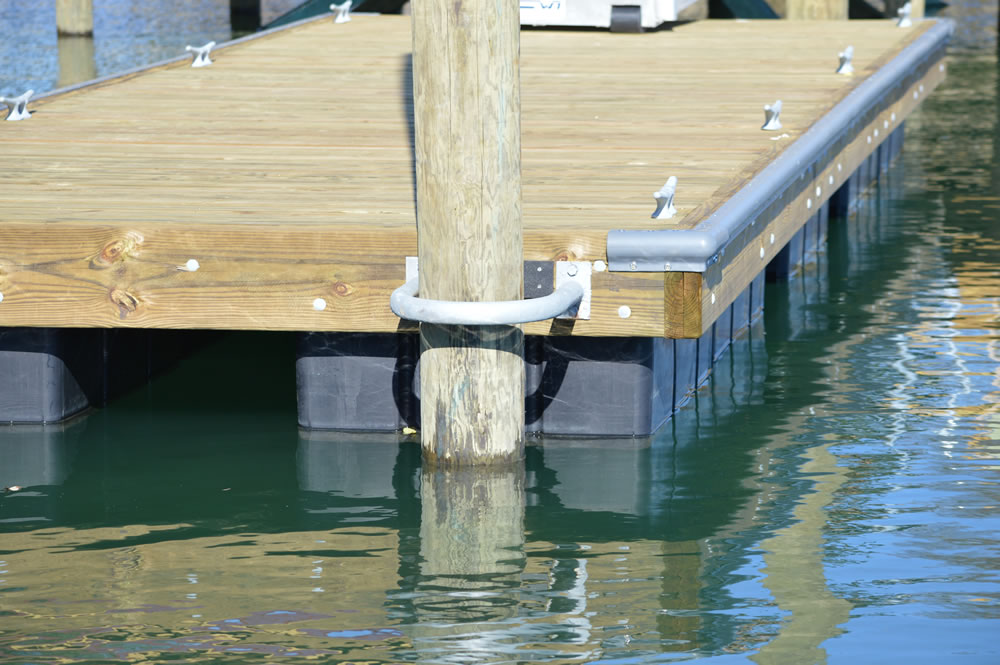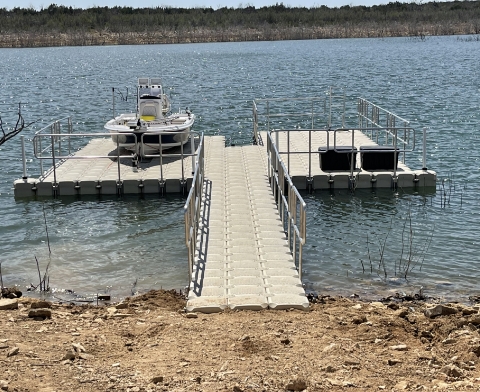Why Floating Docks Are the Perfect Solution for Your Waterfront Demands
Floating docks present a compelling remedy for waterside requirements, especially due to their adaptability to rising and fall water degrees and their durable, modular layout. As we check out the complex benefits and applications of floating docks, it comes to be apparent why they stand out in the realm of beachfront infrastructure-- especially when taking into consideration the lasting benefits they offer for various stakeholders.
Key Advantages of Floating Docks
The versatility of floating docks deals numerous advantages for waterside applications, making them an increasingly preferred selection among marina drivers and property designers. One of the key benefits is their adaptability to varying water degrees, which permits them to remain practical in numerous environments, consisting of lakes, rivers, and coastal areas. Unlike standard fixed docks, floating docks can rise and fall with the tides and seasonal modifications, guaranteeing regular access.
Additionally, floating docks are generally less complicated and cheaper to set up and keep. Their modular design assists in quick assembly, reducing labor costs and construction time. Moreover, the materials made use of in floating dock building are often immune to corrosion, making certain durability with marginal maintenance.
Safety is one more key advantage; the buoyant nature of these docks decreases the danger of mishaps throughout boarding and disembarking, making them specifically appealing for family-oriented centers. Lastly, their ecological influence is reduced than that of fixed structures, as they do not interfere with aquatic ecosystems. Jointly, these benefits position floating docks as a superior service for a variety of beachfront demands, aligning with both functional effectiveness and environmental considerations.
Suitable Applications for Different Activities
Versatility is a characteristic of floating docks, making them appropriate for a broad range of activities throughout various beachfront settings. These flexible frameworks can serve as suitable platforms for leisure activities such as boating, fishing, and swimming. Their resilient nature enables for easy accessibility to boat, allowing smooth embarkation and disembarkation, while additionally giving a secure location for anglers to cast their lines.
In business setups, floating docks promote the loading and unloading of goods, suiting both huge and tiny vessels. They are especially helpful in locations with rising and falling water levels, ensuring that procedures remain undisturbed. Furthermore, floating docks can be utilized for beachfront eating and home entertainment, giving a breathtaking and special experience for patrons.
Environmental applications are additionally noteworthy; floating docks can operate as monitoring systems for wild animals viewing or as docking terminals for research vessels engaged in environmental researches. As marina growths end up being a lot more common, these docks offer a functional remedy for enhancing capability without substantial land modifications. Inevitably, the versatility of floating docks makes them a favored option for anyone seeking practical and effective beachfront services.
Design and Customization Options
Floating docks not only provide to diverse activities however additionally offer a series of layout and modification alternatives that improve their performance and aesthetic appeal. These versatile frameworks can be tailored to fit particular waterside needs, whether for residential, business, or entertainment functions.
One key facet of customization is the choice of products. Choices range from high-density polyethylene to aluminum, each offering special benefits in terms of durability and upkeep. Furthermore, the configuration of the dock can be adjusted to fit different water degrees and ecological problems, ensuring security and safety.
Layout features can include incorporated seating, railings, and lighting, which not just improve usability yet likewise enhance the appearance of the dock. Custom shades and surfaces permit proprietors to match the dock with existing structures or individual choices, developing a cohesive search for the waterfront.
In addition, floating docks can be made with modular areas, enabling simple expansion or reconfiguration as requirements change. This versatility is particularly important for expanding families or developing industrial enterprises. In general, the substantial style and personalization options available make floating docks an extremely adaptable option for any kind of waterfront setup.
Installation and Maintenance Factors To Consider
Generally, successful setup and maintenance of floating docks need cautious preparation and attention to information. Before beginning installation, it is vital to assess the specific website problems, including water deepness, wave activity, and local laws. This preliminary examination educates the selection of products and style, ensuring the dock will certainly hold up against environmental stresses.

Maintenance is equally important to prolong the life expectancy of the helpful site dock. Regular assessments need to be carried out to determine damage, specifically on flotation protection devices, connectors, and outdoor decking. Cleaning the dock occasionally aids stop the accumulation of algae and debris, which can jeopardize surface area integrity and visual appeals.
In addition, seasonal prep work, such as eliminating accessories and safeguarding the dock during extreme climate, can protect against damages. By prioritizing appropriate setup and routine upkeep, proprietors can ensure their floating dock continues to be a dependable and functional waterside solution for many years to find.

Ecological Influence and Sustainability
The environmental effect of floating docks is an important factor to consider for beachfront projects, as these structures connect directly with marine ecosystems. floating dock builder. Unlike traditional set docks, floating docks lessen disruption to the substratum, allowing for all-natural debris activity and minimizing disintegration. Their style enables water circulation below, advertising healthy water settings and sustaining regional wildlife
Numerous floating docks are created from lasting materials, such as recycled plastics and eco-friendly composites, which lower the carbon footprint related to manufacturing. Furthermore, modern styles incorporate functions that boost environmental sustainability, such as absorptive surfaces that assist in water filtering and minimize contamination.
Floating docks likewise supply a perfect platform for environment reconstruction by sustaining the growth of aquatic plant life and offering shelter for fish and various other aquatic microorganisms. By consisting of attributes like fish habitats and immersed growings, floating docks can improve biodiversity in the location.
Furthermore, these structures can be developed to suit photovoltaic panels, providing look at this now renewable resource alternatives that additionally reduce their environmental impact (floating dock services). Overall, floating docks represent a lasting service that stabilizes human usage of beachfronts with the preservation of vital environments
Verdict
To conclude, floating docks existing a extremely versatile and sustainable service for varied waterside requirements. Their modular style, combined with the use of resilient, corrosion-resistant products, makes certain long life and simplicity of upkeep. The adaptability of floating docks accommodates numerous applications, varying from entertainment tasks to industrial operations while reducing environmental impact. Inevitably, the personalized attributes and ability for growth further solidify floating docks as a suitable option for any waterfront task.
Floating docks present an engaging option for waterfront demands, especially due to their flexibility to changing water levels and their durable, modular design. Unlike typical set docks, floating docks can increase and drop with the tides and seasonal adjustments, guaranteeing regular availability.
Collectively, these advantages placement floating docks as an exceptional solution for an array of waterfront needs, straightening with both functional efficiency and environmental considerations.
Overall, the substantial design click here to read and customization alternatives readily available make floating docks a highly adaptable solution for any beachfront setting.
Unlike standard set docks, floating docks decrease disruption to the substratum, permitting for natural sediment motion and lowering erosion.